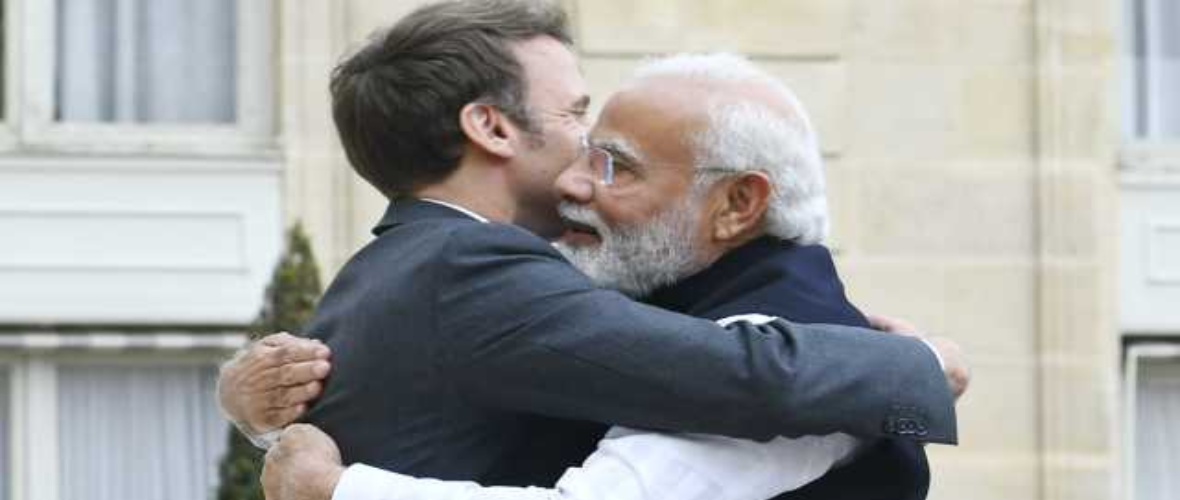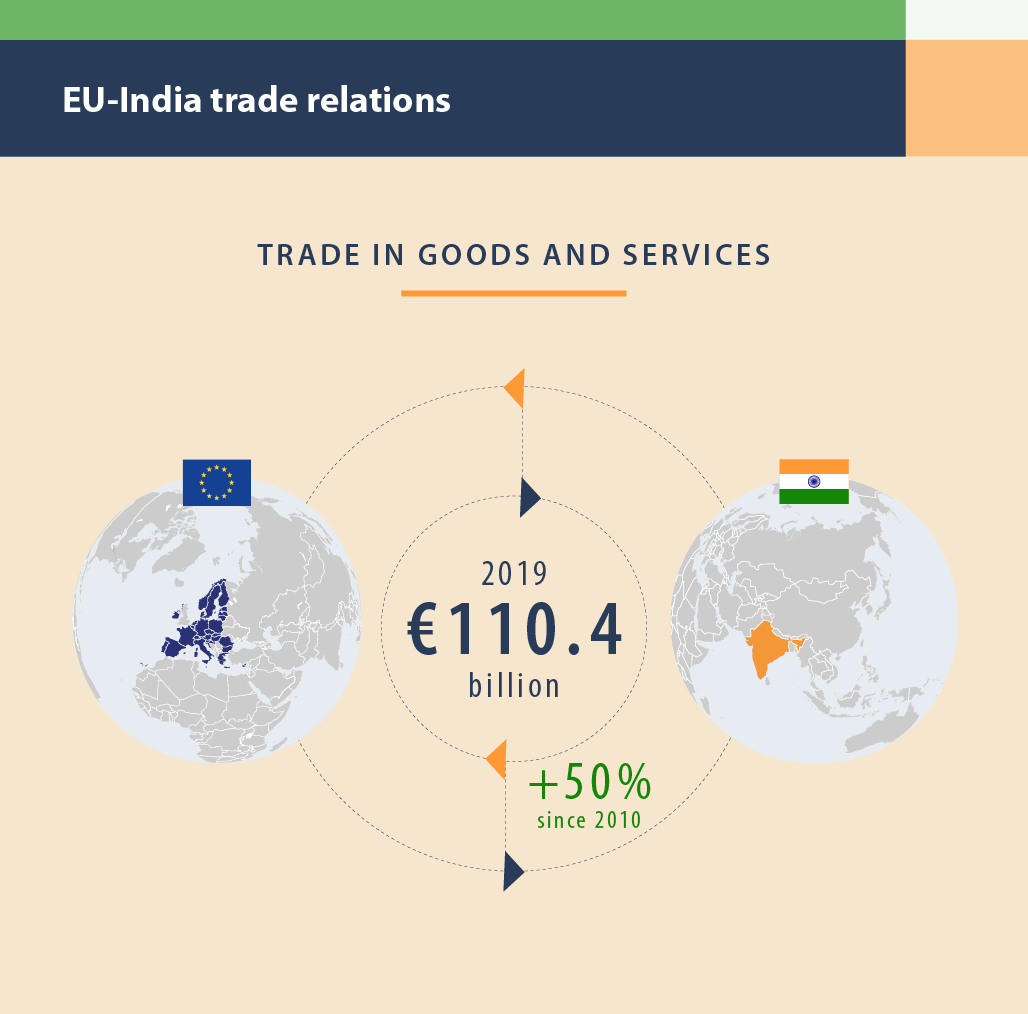Timed to Perfection
May 7, 2022 | Expert Insights

Prime Minister Modi kicked off his hands-on diplomacy for 2022 with his three days visit to Germany, Denmark and France. While the stated objective was to boost ties in a range of areas, including green technology, trade and energy, it was an ideal opportunity to convey Indian concerns over the war in Ukraine and the increasingly strident calls to start a cold war in Europe with repercussions around the globe afresh.
Contours of the Visit
India and France, under President Emmanuel Macron, have been pursuing an especially beneficial relationship for both sides. Prime Minister Modi’s visit to France so soon after the re-election of President Macron underscores the importance that India gives to this relationship. Of course, the status of the UN Charter, international law and the issue of sovereignty and territorial integrity came for discussion, as was expected under the shadow of Ukraine. France, as an important member of the EU and NATO, is aware of the importance of stability in Afghanistan and could play a role in convincing the Taliban regime to address humanitarian concerns, which will allow humanitarian aid to flow into the country. India has a special concern for the rights of women and minorities, which are shared by France. While not a very active player in the Indo Pacific, France wields considerable influence in the region due to its old colonial affiliations and can be a stabilising factor.

As the current president of the EU, France can do well to convey the Indian viewpoint to the European community, which has some reservations about India's neutral stance in the Ukrainian conflict and its refusal to outright condemn the Russian invasion. The same would have been asked of Germany also, as is evident in the joint statement in Germany that does not mention India while stating that “Germany reiterated its strong condemnation of the unlawful and unprovoked aggression against Ukraine by Russian Forces.”
Expectedly, the EU nations are keen to enlist India’s support for a tougher stance against Russia for its invasion of Ukraine. This was evident when Germany extended a G7 Summit invitation to India. This desire was voiced even when Mr Modi attended the India-Nordic Summit. Norwegian Prime Minister Jonas Gahr Støre explained that the “Nordic countries and India have different starting points and different approaches”. The Nordic countries have constantly expressed strong condemnation of Russia’s actions. But they are also aware that India is unwilling to take the same stance as Gahr Støre added, “my Indian colleague listened attentively and understood why we react so strongly to Russia’s conduct in Ukraine”.
An important point on the agenda was the looming food crisis that threatens the world, especially the poorer countries, exacerbated by the pandemic and the war. The Food and Agriculture Resilience Mission (FARM) was launched in March by France in conjunction with European Union, G7 and African Union partners to prevent the catastrophic effects on food security. Through a coordinated, multilateral approach, India and France aim to create a well-functioning market, solidarity and long-term resilience against food insecurity.
Climate change was also a recurring topic of discussion. France and India reiterated their continued commitment to the International Solar Alliance and also to explore other opportunities to work on sustainable energy transition pathways. Denmark and India also discussed the possibility of cooperation in electric mobility, sustainable urbanisation, green hydrogen and green shipping. "Denmark was with us in India’s White Revolution, now becoming a strong partner in our green future,” said Mr Modi. The need of the hour is to promote LIFE - Lifestyle for Environment, and developments in these bilateral relations. Denmark is willing to support the Green Finance Initiative via investment in renewable energy, water, port modernisation and engineering sectors. Robust bilateral investments and trade flow through diversification and transparency will ensure economic security and mutual prosperity.
Germany is India's largest trading partner, and dialogues between the countries will chart a course to deepen ties between the two. German Chancellor Olaf Scholz has pledged 10 billion euros to help India achieve its climate goals. Additionally, Germany is looking to diversify its trade relations in India to reduce its reliance on China, a strategic rival. Chancellor Scholz described India as a “central partner for Germany in Asia in terms of the economy, defence and climate policy."
Assessment
- On the one hand, the 3-nation tour was certainly productive. It promises advanced investment and trade ties along with green partnerships. But on the other hand, it is important to see if the conflicted stance on Ukraine overshadows any progress between India and Europe.
- India received an invitation to attend the upcoming G7 Summit. It would be interesting to see how India deals with the concentrated pressure of the G7 on Ukraine during the summit in Germany. India must be able to convince the G7 to de-hyphenate Indo-EU relations with Indo Russia partnership as both are equally important from the Indian viewpoint.








Comments